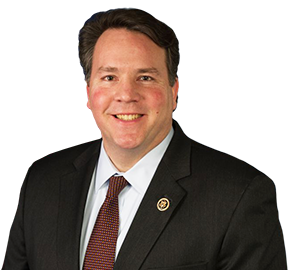Members of West Virginia’s congressional delegation didn’t mince words when responding to President Barack Obama’s budget plans.
The president released his proposed budget Monday, which totals nearly $4 trillion. While the president focused on funding things like transportation and improving the country’s infrastructure, it could mean doing away with across-the-board spending cuts implemented four years ago, as well as new taxes — an idea that didn’t sit well with West Virginia’s elected officials.
“As usual, the president is playing politics rather than offering serious solutions to the American people,” said Rep. Alex Mooney, R-W.Va. “The president’s irresponsible plan calls for nearly $4 trillion in federal spending while running a $474 billion deficit. The plan also calls for $320 billion in new taxes on the American people. The president’s plan for higher taxes and reckless spending will hurt hardworking taxpayers.”
Sen. Shelley Moore Capito, R-W.Va., said she is disappointed to see the president’s budget put the country in deeper debt.
“Rather than a budget that adds $8.5 trillion to the national debt, we need a budget that responsibly moves our country forward without saddling our children and grandchildren with mountains of debt,” she said in a statement.
“We need a budget that invests in job creation, harnesses our abundant energy resources and doesn’t make promises we can’t afford to keep. I am committed to working with my colleagues in the Senate to develop a budget that protects West Virginia’s hard-working families, and I’m hopeful President Obama will work with us for the good of the American people.”
Rep. David McKinley, R-W.Va., took to Twitter to air his frustrations.
“Obama offers no solutions for the debt in #2016Budget — just taxes to pay for more spending programs,” he tweeted. “Americans deserve better.”
Also on Twitter, McKinley pointed out at this rate the U.S. deficit will reach $20 trillion in 2017.
“The #2016Budget sets us on path to pay $5.6 trillion in interest on that debt over next decade. (Average) $560 billion a year to creditors,” he tweeted.
Part of the president’s spending plan includes infusing about $1 billion into the Appalachian coalfields over the next five years to clean up abandoned mine sites, and Obama also is calling for $2 million in tax credits aimed at stimulating innovation related to carbon capture. Another $3.9 billion over 10 years will protect health and retirement benefits for retired miners.
Bill Price, national organizer for Sierra Club, applauded Obama’s efforts.
“It’s just wrong that workers and communities throughout Appalachia have borne the brunt of the decline of the coal industry, a decline that is a result of a revolution in the energy sector that includes rapidly falling prices for other energy sources and overwhelming, grassroots public demand for clean energy,” Price said in a statement.
“Coal families and communities deserve our gratitude and respect, and we applaud the president for recognizing the essential need to ensure that our country’s transition to a future less dependent on coal is as smooth as it can be. It’s time for America to invest in the families and communities that most need new opportunities and the resources to build them.”
Republicans are expected to offer their own budget in the coming months, and the legislative and executive branches will work to establish one budget for fiscal year 2016.

